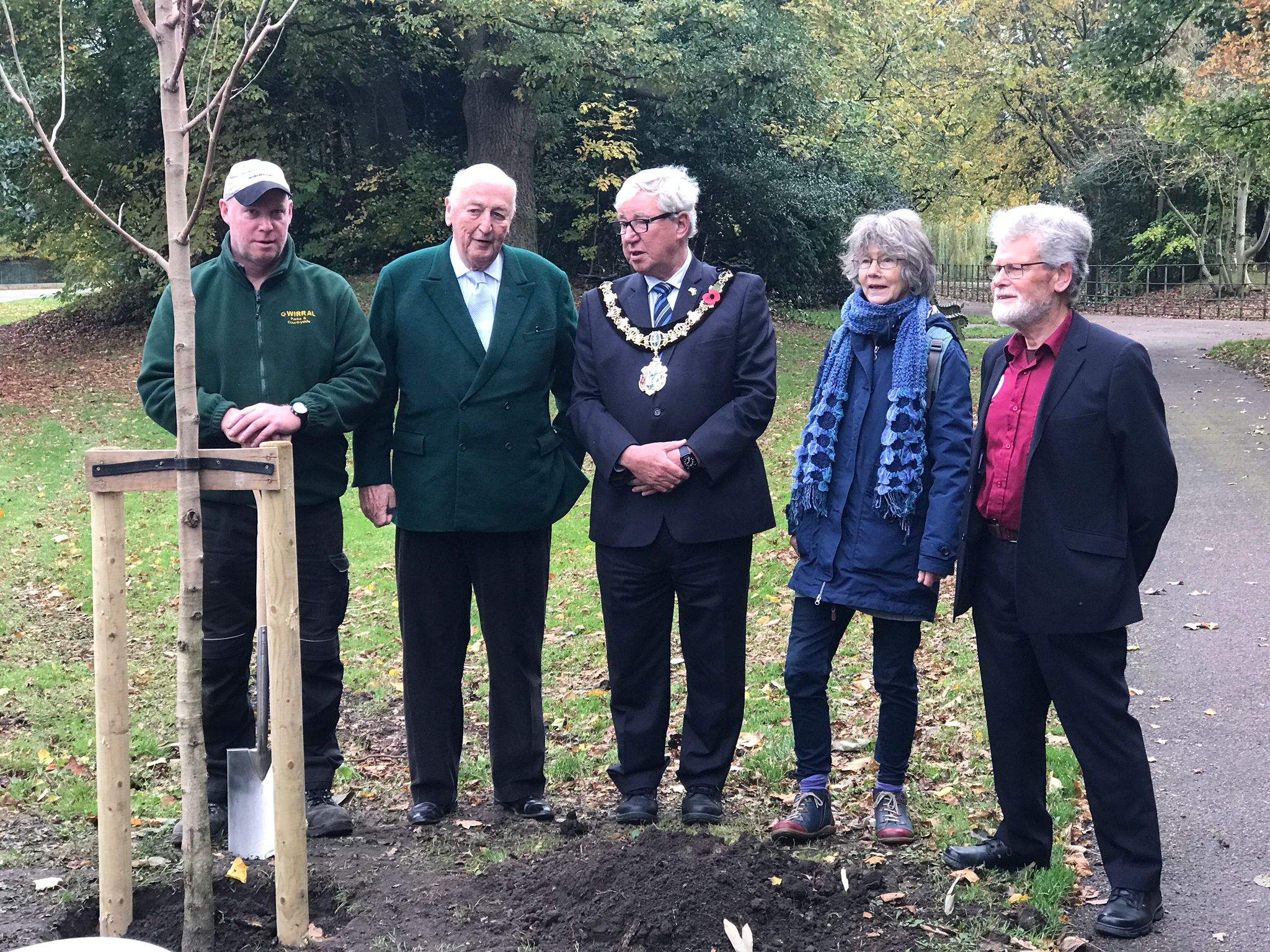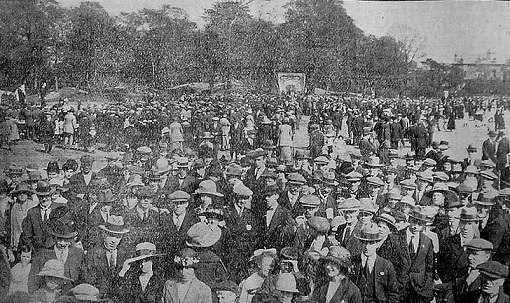The Duke of Devonshire in Merseyside
One of the most recent Celebrations in the Park saw the Duke of Devonshire visit the Park to plant a tree and unveil plaques in honour of the work of Joseph Paxton, designer of Birkenhead Park and Princes Park. The day began in Liverpool where the Friends of Princes Park welcomed the Duke back to the Park before he planted a tree ably assisted by children from St Silas's school. Later in the day, the Duke and his head gardener, Steve Porter, were in Birkenhead to plant another Chinese Tulip Tree and you can see a short video of the event by following this link Friends of Princes Park L8
Birkenhead Park
Celebrations & protests
In its early years the Park expected to host major outdoor celebrations with speeches and displays. In 1864 an Oak tree was planted to celebrate the 300th anniversary of Shakespeare’s birth. Celebrations were staged of coronations of new monarchs (Edward VII, George V, and Elizabeth II), jubilees (e.g. Queen Victoria’s and the that of Birkenhead itself) and other local events, involving large numbers of people both participating and watching.
The town also had a willingness to protest and express its opinions. Here the Grand Entrance established a role as the prime location for public meetings.
In the 1895 election campaign, the Liberal candidate W.H. Lever addressed crowds there and then led a parade of 3,000 people to gain more publicity. In the 1920s and 30s communists, and fascists including Oswald Mosley's blackshirts, addressed crowds. Oswald Mosley wanted to speak at Birkenhead Park but was refused permission. Some of the troubles of the Birkenhead Means Test Riots in 1932 started with gatherings here - followed by much violence in the town and many arrests. Even spikes from the Park railings were broken off and thrown at the police. There were “No More War” processions from the centre of town to the Grand Entrance in the 1930s, and the Lower Park was also the location for May Day celebrations and Labour Day Protests in that period.
The Park continues to be the centre for celebrations of various kinds and in 2017 the centenary of the 1917 Welsh National Eisteddfod being held in the Park, was marked by a number of events.

